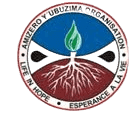“When people with and without disabilities have opportunities to do things together, attitudes about inclusion are positive. When people with and without disabilities spend time together in a vocational setting, as well as other settings, they learn that: They have common interests and goals; There is more than one way to accomplish something; By working on things together, everyone benefits and respect for diversity enriches the learning environment for everyone.”[1]
Youth with intellectual disabilities are less likely than their nondisabled peers to graduate from high school, attend and complete either Nine-Years-Basic education nor Twelve-Years-Basic-Education and universities, and be employed.
Amizero y’Ubuzima Organization works to influence national policy and promote effective workplace practices to ensure that today’s—and tomorrow’s—workforce is inclusive of all people, including people with disabilities.
We seek to offer vocational training to youth with disability, very specifically those with intellectual disability for them to get:
- Opportunities to develop social, civic, and leadership skills
- Strong connections to caring adults
- Access to safe places to interact with their peers
- Support services and specific accommodations to allow them to become independent adults
The program is the continuation of the integration, from which students with special needs who cannot follow formal education process in mainstream schools, get vocational training of their choice. For at least two years, students will get trained in specialized or inclusive vocational training schools or workshops to acquire vocational skills which they will be helped to apply in their daily life, in association with their peers without disability. At the end of the training the students will be equipped with appropriate toolkit and guided to run their own small income generating activities (IGAs) through self-help groups and cooperatives.
